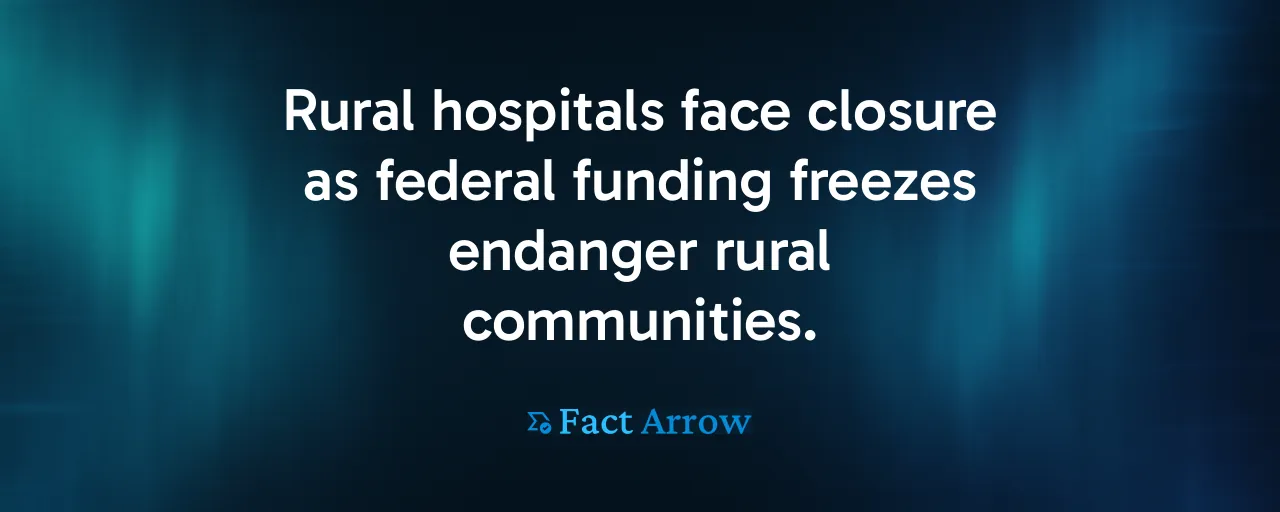A Sudden Blow to Healthcare Access
In Illinois, a stark warning has emerged: 330,000 residents face losing their Medicaid coverage due to federal budget cuts proposed by the Trump administration. This news, highlighted by Governor J.B. Pritzker, signals a crisis for families already struggling to afford care. Beyond the loss of coverage, thousands more could see their insurance premiums spike, while rural hospitals teeter on the edge of closure. The impact is immediate and personal, affecting real people with real needs.
This is a direct threat to the well-being of communities across the state, extending beyond a distant policy debate. From Chicago's urban centers to downstate rural towns, the ripple effects of these cuts could unravel years of progress in expanding healthcare access. The question now is how to respond, aiming to mitigate the damage and build a system that prioritizes people over politics.
The Human Cost of Federal Cuts
Medicaid serves as a lifeline for low-income families, seniors, and people with disabilities. In Illinois, it covers essential services, from doctor visits to long-term care in nursing homes. According to a 2025 NPR Illinois report, the proposed cuts would disproportionately harm vulnerable groups, including noncitizens enrolled in state-funded programs. These individuals, many of whom work essential jobs, could lose access to basic care overnight.
Rural communities face an equally dire threat. Chicago Business reports that safety-net hospitals, already operating on thin margins, could shutter if federal funding dries up. This would force patients to travel hours for care, assuming they can afford it. The loss of local hospitals also means fewer jobs, further straining small-town economies. The stakes are clear: without intervention, entire communities could collapse under the weight of these policies.
Why Equity in Healthcare Matters
Access to healthcare represents a matter of fairness, not merely a policy issue. For years, advocates have fought to expand Medicaid in Illinois, ensuring that everyone, regardless of income or background, can see a doctor when they need to. A 2018 statement from Senator Dick Durbin underscored how federal actions, even then, drove up premiums, making coverage unaffordable for many. Today's cuts echo that pattern, undermining efforts to create an equitable system.
The principle here is simple: individuals ought not to go bankrupt or untreated because of where they live or how much they earn. The current federal approach risks widening disparities, particularly for marginalized groups. Black and Latino communities, for instance, rely heavily on Medicaid for preventive care. Reducing funding cuts services, further deepening systemic inequities that have persisted for generations.
Learning From the Past
Federal policies have threatened Illinois' healthcare system in the past. In 2017, similar attempts to slash Medicaid funding sparked widespread outcry, leading to bipartisan efforts to protect coverage. Historical data from the Associated Press shows that when states expanded Medicaid under the Affordable Care Act, uninsured rates dropped significantly. Illinois saw a 7% decrease in uninsured residents between 2013 and 2019, a direct result of these efforts.
That progress is now at risk. The Trump administration's 2025 funding freeze, which blocks over $400 million for Illinois health programs, mirrors past attempts to dismantle safety nets. History also offers hope; coordinated action by state leaders, advocates, and communities preserves access. Illinois has a track record of fighting back, and that resilience is needed now more than ever.
Solutions Rooted in Fairness
Protecting healthcare access requires bold, immediate action. State leaders like Governor Pritzker have already pledged to explore legal and legislative avenues to restore funding. One option is increasing state-level subsidies for low-income residents, as Illinois did successfully in 2020 to stabilize premiums. Another is investing in community health centers, which provide affordable care even if hospitals close, according to Block Club Chicago.
Long-term, the focus shifts to systemic change. Advocates argue for a universal healthcare model that guarantees coverage for all, regardless of federal whims. Such a system would prioritize preventive care, reduce administrative waste, and ensure rural areas are not left behind. While ambitious, pilot programs in other states, like California's Medi-Cal expansion, show feasibility with enough political will.
A Call to Act
The threat to Illinois' healthcare system demands a collective response. Families, healthcare workers, and advocates must rally to protect the most vulnerable. This means pressuring lawmakers to prioritize funding, supporting organizations like Planned Parenthood that continue care despite cuts, and amplifying the stories of those affected. Every voice matters in this fight.
Looking ahead, the goal is to undo the damage and build a system that works for everyone. Equity, access, and compassion must guide the way. Illinois has faced challenges before and emerged stronger; it can do so again by standing firm for its people.
The road will not be easy, but letting 330,000 Illinoisans lose their lifeline is unthinkable. Now is the time to act, to demand better, and to ensure no one is left behind.
